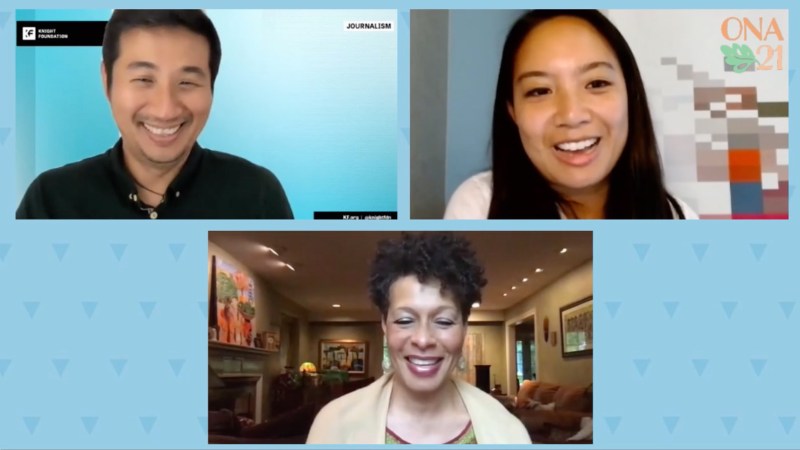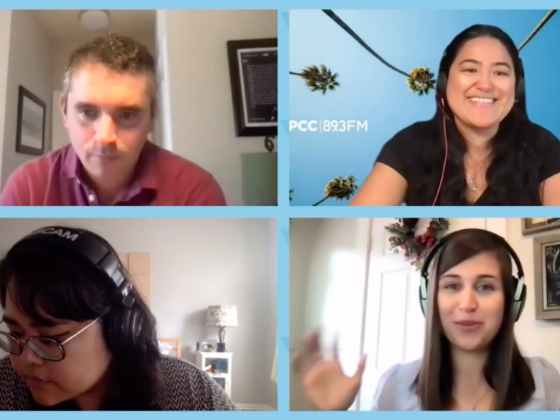Over the last 18 months, the twin crises of the COVID-19 pandemic and systemic racism have brought racial blind spots to the forefront of reporting across America. There have been many conversations in the last few months about journalism’s role, including at the ONA21 conference session Journalism and Cultural Literacy: Addressing Racial Blind Spots in News.
Here are three themes to keep in mind:
Words matter
Nicole Dungca, an investigative reporter for the Washington Post, said words count when describing the outbreak of the COVID-19 virus.
“Things like being very careful about the language you use. I mean you’ve seen racist terms of how some people have referred to it as the “Kung Flu” virus … and we had to make sure that we had people not repeating “Wuhan Virus” in a way that showed that, that was a legitimate way to refer to this,” Dungca said.
Reporters needed to be careful not to repeat the racist language that put Wuhan, China, its citizens and Asian Americans in a bad light.
Watch the stories we tell
Meanwhile, the Black Lives Matter movement intensified in the aftermath of the killing of George Floyd, which brought cases of police brutality to the forefront. Journalists were challenged to find balance within competing narratives.
Racial blind spots are a familiar topic for Sara Lomax-Reese, president and CEO of WURD Radio, the only African-American owned and operated talk radio station in Pennsylvania and one of few in the country.
“There’s such a long history of disrespect and marginalization for Black Americans in American society and mainstream media,” she said.
People have to educate themselves about unfamiliar cultures to avoid conveying stereotypes.
“How do we dismantle a system that has oppressed different people, especially Black people in this country and other people of color?” Lomax-Reese asked.
Step out from what you know
Both Lomax-Reese and Dungca said journalists need to get to know different cultures and step out of familiar practices.
“As woke as we think we are, we aren’t that woke. None of us are,” Lomax-Reese said. “Diversify your personal network, be intentional about spending time with people from different backgrounds and different walks of life.”
“That will enrich you,” she said. “I think all of these stereotypes are a consequence of us living in these silos and just living amongst people who think and look like ourselves.”





